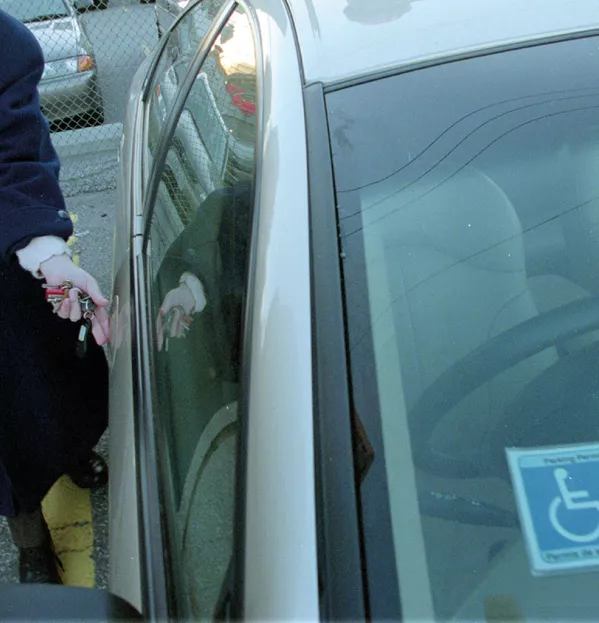Colleges’ lack of disabled staff ‘is a great concern’

Colleges view themselves as equal-opportunities employers who employ a wide range of people. But a report from the Scottish Funding Council (SFC), published last week, reveals that people with disabilities are seriously underrepresented among further education staff.
The SFC’s staffing data for 2016-17 shows that, of the 15,528 staff employed in FE colleges in 2016-17, 750 declared one or more disabilities. This equates to 5.2 per cent. Among the Scottish population, the proportion of people with a disability is 14.9 per cent.
“We would expect this figure to be considerably higher based on the population of Scotland with a disability and the age breakdown of college staff,” says the SFC report. “The proportion of the Scottish population with a disability increases with age…This clearly suggests that the proportion of college staff with a disability is well below the levels in the Scottish population and student population of our colleges. It is unknown how this is impacted by the willingness of staff at our colleges to disclose a disability.”
The EIS union, which represents college lecturers in Scotland, says this is “a great cause for concern”, and highlights the need for equal opportunities policies to be properly adhered to within all establishments.
The figures also show that only 2,493 staff at colleges were below the age of 35, while there were 5,676 aged between 36 and 50, and 6,359 aged 51 and over. “There are more college staff aged 50 and below than those aged 51 and over, but those in the older age group do make up 43.8 per cent of the staff headcount,” says the report.
Meanwhile, the number of full-time staff has fallen over three years, from 7,712 in 2014-15 to 7,643 in 2016-17 - a decrease of 0.9 per cent. In contrast, part-time staff numbers have steadily increased from 3,086 in 2014-15 to 3,247 in 2016-17 - an increase of 5.2 percent.
The SFC report also shows that the proportion of full-time permanent college teaching staff with a recognised teaching qualification increased steadily from 87.8 per cent in 2014-15 to 88.4 per cent in 2015-16 and 88.9 per cent in 2016-17. Owing to the large number of trade professionals and part-time or seasonal staff in the sector, that proportion has traditionally been significantly lower than in schools, where a teaching qualification is a prerequisite for employment.
An EIS spokesman says that the age profile in FE “largely reflects recent trends within all sectors of education, where there tend to be cycles of large numbers of new staff entering and long-serving staff leaving at certain points of time”.
“The shift to more part-time posts in colleges may partly be a reflection of a general trend towards more flexible working patterns, particularly for lecturers with caring responsibilities, but also a result of reorganisation within the sector and reductions in course provision and student and FTE [full-time equivalent] staff numbers,” the spokesman adds.
“Many lecturers also have other jobs, often related to the courses they teach, which will be a factor in the number of teaching hours they can commit to.
“Nevertheless, there should be concern over the potential atomisation of the workforce within the sector and over the workload implications of staff.”
Shona Struthers, chief executive of Colleges Scotland, says: “The Scottish Funding Council’s data shows that the number of staff within colleges with a disclosed disability is increasing. This tells us that colleges are taking their role as equal-opportunity employers seriously by providing employment opportunities for people with different protected characteristics who wish to work in the college sector.”
She adds: “For example, colleges have duties under the Equality Act 2010, have initiatives in place such as guaranteed interview schemes to remove barriers, and they work with organisations such as the Equality Challenge Unit to ensure that they follow best practice.”
Colleges are major employers within their regions, she explains, and employ a range of staff in a variety of different roles. “Scotland is facing an aging population, and the latest staffing figures for the sector undoubtedly reflect this and the fact that staff turnover within colleges is relatively low,” says Struthers. “In addition, some roles within the sector require industry experience, so college lecturers often spend time working in industry, gaining valuable expertise in their field before moving into teaching.
“As colleges are at the forefront of education and skills, they are making the most of training and development programmes such as Modern Apprenticeships to attract a younger workforce.”
The Scottish government was contacted for comment.
You need a Tes subscription to read this article
Subscribe now to read this article and get other subscriber-only content:
- Unlimited access to all Tes magazine content
- Exclusive subscriber-only stories
- Award-winning email newsletters
Already a subscriber? Log in
You need a subscription to read this article
Subscribe now to read this article and get other subscriber-only content, including:
- Unlimited access to all Tes magazine content
- Exclusive subscriber-only stories
- Award-winning email newsletters